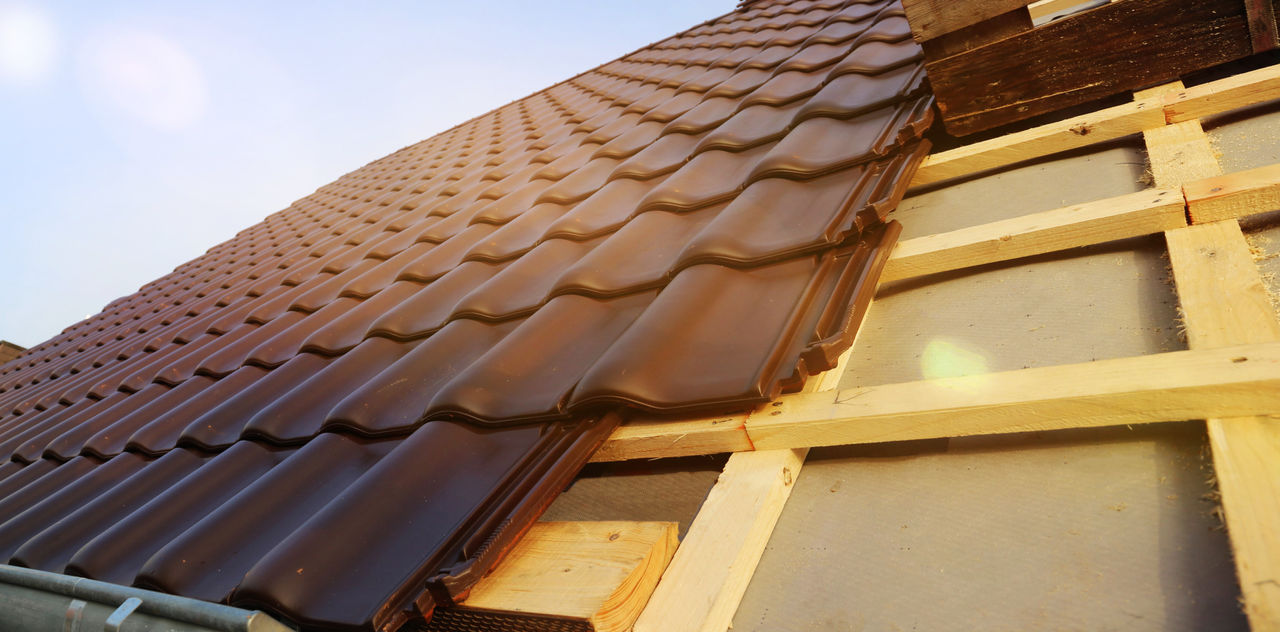DIY home maintenance vs. hiring a professional
Are you handy enough? 10 factors to consider
As a homeowner, you’re probably capable of handling many tasks on your own. But there are some things you should leave to a trustworthy professional who can address your home maintenance needs safely, competently and efficiently.
When it comes to DIY home maintenance, the first question is: Are you up for it? There are several factors to consider before deciding whether to tackle a project on your own or hire a professional. When maintaining your home, the end goal should be to address your practical needs, your comfort, and the overall lifespan of your home.
If you want to hire a professional for your maintenance needs, check the BBB Directory. You'll find BBB Accredited Businesses that can do the job well while following industry and ethical standards. If any unforeseen setbacks occur, these businesses will maintain trust through safeguards like warranties, insurance, and contract agreements.
As for the question, “Should I DIY it? Or call in a pro?” Consider these 10 factors first and learn when to hire a home maintenance professional.

1. Skill level
Do you have the skills to diagnose the project and perform the necessary maintenance?
Major electrical work requires certified electricians trained to handle tasks involving dangerous electrical currents. If not handled correctly, this work
could lead to shocks, fires, and even fatalities. Electrical work, gas appliances, roof repairs, HVAC system maintenance, and structural engineering needs all require advanced skill levels.
If you’re a DIYer who tinkers and learns from books and YouTube videos, avoid contemplating maintenance that requires specialized training.
If you don’t have the experience or knowledge to handle the job safely and professionally, don’t do it. Think about calling a BBB Accredited Business instead.
2. Safety risks
Many tasks require extra precautions and safety measures. As an example, think about a new roofing job.
Do you have the proper harnesses to protect yourself? If a friend helped you out and they took a fall, would you be able to cover their injuries? Don’t put yourself and others in danger by taking unnecessary risks.
Along with some of the common risks like electrical currents and natural gas lines, some maintenance work is performed at great heights, involves pest handling, or deals with hazardous materials (see next section). Let the professionals handle things if you can’t address these risks.
3. Hazardous materials
Along with safety risks, things like mold remediation or biohazardous work environments may require additional skill sets. They might need permits, licenses, skills, and knowledge of regulations in your area that you don't possess. Hire an expert instead of attempting these tasks yourself.
When not handled correctly, hazardous substances could lead to long-term health issues.
Some additional resources on hazardous material removal specialists:
- Hiring a mold remediation specialist
- What you should know about asbestos removal
- Lead abatement specialists near you
- Asbestos removal companies near you
- Mold remediation companies near you
- Septic tank cleaning companies near you
- Pest control technicians near you
- Chimney cleaning experts near you
placeholder white text
4. Equipment
Do you have the specific equipment, machinery, or tools needed to accomplish your job? Sure, you might rent certain items, but this will also be money out of your pocket. And even if you have access to these tools, some required learning may be involved before operating them.
As mentioned above, contractors like roofers and painters may need specific equipment like harnesses or scaffolding for safety purposes.
Hire a professional who already has the proper gear – and knows how to use it.

5. Complexity
While patching a hole is simple, performing some home maintenance jobs requires completing multiple steps in a very specific way. For example, replacing your HVAC system may involve electrical rewiring, ductwork, insulation, refrigerant handling, equipment installation and removal – and more. When unique challenges like these involve some advanced levels of know-how, consider a professional crew.
Additionally, some tasks require multiple people. Friends and family can assist with small tasks and it might only cost you a pizza.
However, larger home maintenance jobs require professionals. These professionals possess the necessary expertise and have specific roles assigned to complete the job successfully.
6. Job length
Think about all the weekends, research and work that factor into a DIY project; do you have the bandwidth?
And for urgent needs, this is where experience comes into play. There is little time to do a DIY repair when unexpected problems arise, like a blocked drain flooding the house. You want a professional to quickly diagnose the problem and act to keep your home from flooding.
The same goes for long-term projects. If you want to update your laundry area, kitchen or bathroom with new appliances and fixtures, people may expect you to do it quickly. If that doesn’t happen, you could be relying on a laundromat and spending more money.
A trained expert could save you time and money in the long run.
7. Cost vs. budget
Most who choose to tackle a home maintenance task themselves are probably looking to save money. But in many cases, there are still costs involved in the form of materials, equipment and extra help. Changing light fixtures may be simple, but changing out that really high ceiling fan could be more complicated.
Before you go the DIY route, consider your budget. If you do it yourself to save money, are you compromising the quality, integrity, effectiveness, or longevity of the work? And if so, are you truly saving money?

8. Certifications or licensure
If any specialized skills or certifications are involved, a trusted professional team should already have these in place. These certifications* are necessary for many industries to maintain certain quality and safety standards.
As a reminder, BBB Accredited Businesses meet their regional licensing and certification requirements as part of their commitment to building marketplace trust. These businesses train their teams to use the proper materials, equipment, and techniques to best accomplish the job.
In other words, these licenses and certifications give homeowners peace of mind because they know they are working with professionals who are working ethically in their industry.
*Required certifications vary by state, province, or country.
9. Permitting, meeting regulations
While price is important, paying lower prices might result in poor craftsmanship, cheap materials and ultimately, a bad end result.
Consider all angles – especially regarding things like reputation, experience and communication – when making big decisions.
Related article: How to make your next home improvement project a success
10. A backup plan
You might not be thinking about mistakes just yet, but what if the project doesn’t go as planned? Do you have a plan B? How will you cover injuries, setbacks, and repair work?
Professionals with proper insurance coverage are prepared for possible setbacks or accidents. You are protected and likely eligible for reimbursement or additional work orders if there is an accident, shoddy work or another mishap. Can you afford to pay additional expenses in these scenarios when you go it alone?
Decision time
So, in the expert vs. DIY question, what’s the best way forward to accomplish your project? When you consider the above factors, does it make sense for you to handle the job?
If the best course of action is to hire someone, the question then becomes, how to hire a contractor you can trust? As an organization with a mission of building marketplace trust, we always advise working with a BBB Accredited Business. For your home, you need a trustworthy company that gets the job done right.


